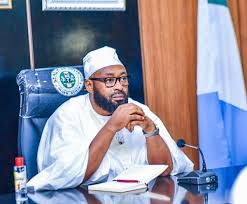Niger State Governor Mohammed Bago has declared that political power will return to northern Nigeria following President Bola Tinubu’s anticipated eight-year tenure, advising northern presidential aspirants to wait until 2031 to pursue their ambitions.
Speaking during a television interview on TVC, Governor Bago emphasized his unwavering support for President Tinubu while reinforcing the importance of maintaining Nigeria’s informal power rotation arrangement between the North and South.
“When he (President) finishes his eight years, power will come to the North and northerners, who want to contest, can then contest,” Bago stated, stressing that both regions must respect the eight-year rotation policy that has guided Nigerian politics in recent decades.
The governor dismissed suggestions that power should return to the North before Tinubu completes his potential two-term presidency, arguing that such calls are premature given that the current administration is only in its second year.
“In Niger State, there is no dissenting voice. Nigeria is coexisting peacefully because we have decided to embrace a kind of rotation in governance; the North will do eight years, the South will do eight years,” he explained.
Bago expressed frustration with northern politicians who might be positioning themselves for an early return to power, reminding them that the North had previous opportunities to retain leadership.
“He (Tinubu) is just two years in office, and you are saying it should come back to the North. How? We had opportunities. So, we will continue to support the President,” the governor added.
Governor Bago also addressed mounting criticism over his administration’s financial policies, particularly concerns about state borrowing and debt management. In a defiant response to critics, he suggested that his decisions regarding state finances should not be subject to public scrutiny, even making the controversial statement that selling the state to fund development projects would be within his prerogative.
“If I were to sell Niger State to raise funds for the state projects, what is your business?” Bago asked rhetorically during a stakeholders’ engagement meeting held on August 11, 2025, with representatives from Tafa, Gurara, and Suleja local governments.
The governor, who spoke in Hausa during the meeting, challenged his critics to withhold judgment until the completion of his eight-year tenure, promising to leave the state debt-free while demonstrating clear improvements from his predecessor’s legacy.
“People should wait till after my eight-year tenure in office to question my worth, as I will be leaving the state with zero debt after eight years. I will also show you that this is what I met on the ground and this is what I’m leaving the state with,” he declared.
Addressing specific concerns about borrowing, Bago revealed that his administration has not yet begun significant loan acquisition, suggesting that current worries are premature.
“People are worried I’m collecting loans, but I haven’t started acquiring loans yet. This is just the beginning, and for the past administrations that collected loans, what did they do with them? Why are people taking medication for my headache?” he questioned.
The governor also defended his administration against criticism regarding infrastructure decay, arguing that his government inherited damaged schools, hospitals, and roads from previous administrations. He expressed frustration with social media posts attributing infrastructure problems to his two-year-old administration.
“They said schools, hospitals, and roads have gone bad. Is it my administration’s responsibility for it, or aren’t we just repairing what we met? People are posting and saying that just two years of my tenure, I have damaged schools, hospitals, and roads,” Bago complained.
He concluded by appealing for party unity, stating, “We will not castigate one another because we belong to the same party; we are not fools.”
The governor’s comments come amid growing public discourse about Nigeria’s political future and concerns over state-level fiscal management across the country.



















